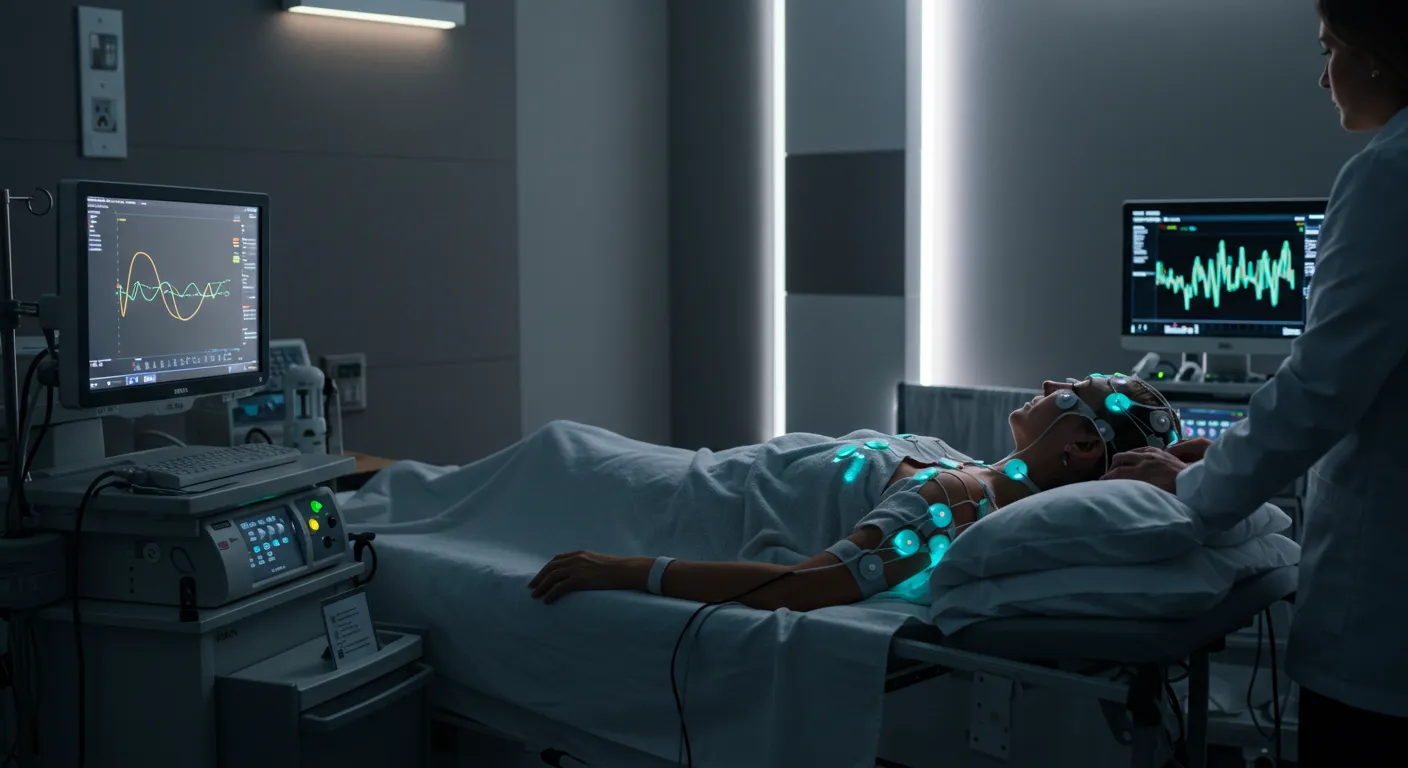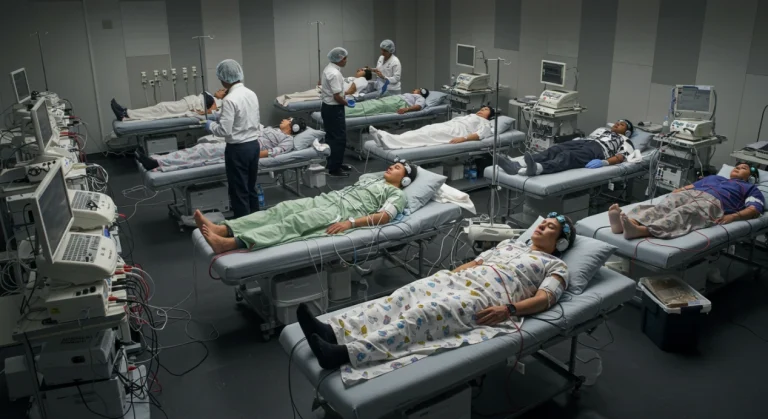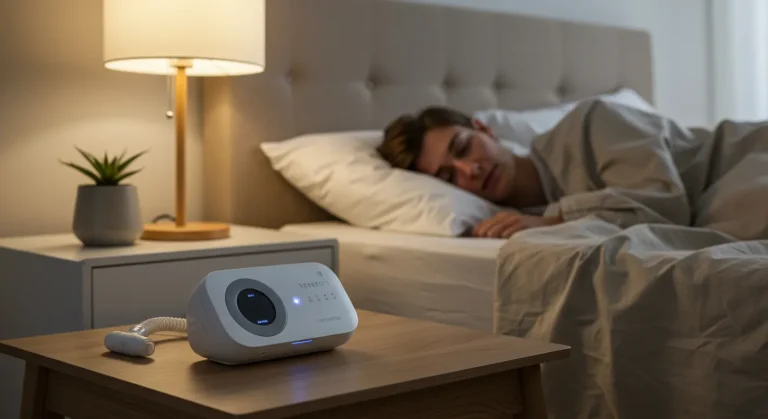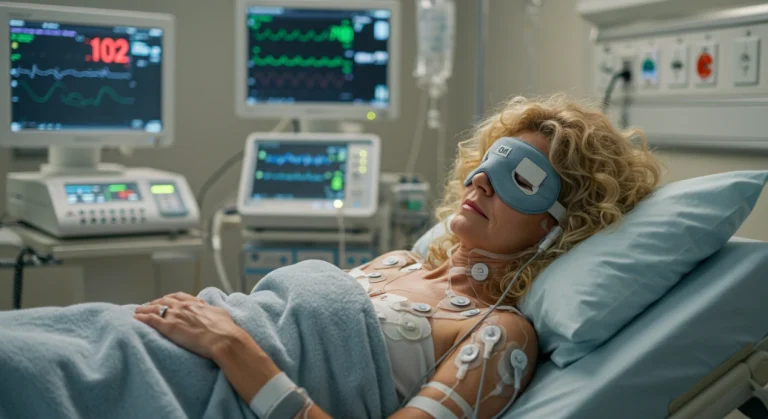How Sleep Studies Lead to Better Treatment for Sleep Disorders

At Vector Sleep Diagnostic Center, we understand that sleep is essential for your overall well-being. When you’re struggling with sleep disorders, it can impact not just your energy levels but also your mood, productivity, and health. Our team is dedicated to guiding you through the complex process of sleep diagnosis and treatment. Sleep studies, also known as polysomnography, are one of the most effective tools available for diagnosing a range of sleep disorders. In this article, we’ll explore how sleep studies lead to better treatment outcomes, and why they’re crucial in achieving a restful, healthy night’s sleep.
Understanding Sleep Studies: What They Are and How They Work
Sleep studies are comprehensive diagnostic tests designed to assess what happens in your body while you sleep. They are most commonly used to identify conditions like sleep apnea, restless leg syndrome, narcolepsy, and other disruptive sleep disorders. The study involves monitoring various body functions—such as brain activity, eye movement, heart rate, oxygen levels, and muscle activity—during sleep to detect irregularities.
At Vector Sleep Diagnostic Center, we offer state-of-the-art sleep study services that help our specialists gather the most accurate information about your sleep patterns. We know that getting a proper diagnosis is the first crucial step in providing you with the right treatment.
Why Sleep Studies Are Essential for Accurate Diagnosis
A sleep study provides an in-depth, objective look at what’s happening during your sleep, which can be difficult to assess through symptoms alone. For instance, someone suffering from sleep apnea may not be aware of their breathing pauses during the night. A sleep study can reveal these disruptions, allowing for a precise diagnosis.
By capturing real-time data, sleep studies allow us to pinpoint the exact nature of your disorder. This is vital because treatment for sleep disorders varies widely depending on the condition. Whether you’re dealing with snoring, insomnia, or a more complex issue like obstructive sleep apnea, a sleep study offers the data necessary to guide treatment decisions.
What Happens During a Sleep Study?
During a sleep study, you’ll be comfortably monitored in a quiet, relaxing environment, equipped with sensors that track your body’s functions as you sleep. These sensors will measure brain waves, heart rate, blood oxygen levels, and muscle activity, among other things. The procedure is non-invasive and designed to be as comfortable as possible to allow you to sleep naturally.
At Vector Sleep Diagnostic Center, we ensure that every patient is treated with care and respect during the study, helping you feel at ease as we gather the information needed to offer the best care possible.
Sleep Studies and the Path to Better Treatment
Sleep studies are not just diagnostic—they are an essential part of crafting an effective treatment plan. Once we’ve identified the cause of your sleep disturbances, the next step is to recommend a tailored treatment plan based on your specific needs. Whether you need lifestyle changes, a CPAP (Continuous Positive Airway Pressure) machine for sleep apnea, or medication for other sleep-related conditions, a sleep study is the cornerstone of successful treatment.
Tailored Treatment Plans Based on Comprehensive Data
One of the main advantages of sleep studies is their ability to provide detailed data that allows for personalized treatment. This means that rather than a one-size-fits-all approach, we focus on what will truly work for you based on your unique needs. This is especially crucial for conditions like sleep apnea, where the severity and specific patterns of the disorder can differ from person to person.
Take, for example, a patient diagnosed with sleep apnea. After the sleep study, the results may show the number of breathing interruptions per hour, the length of each pause, and whether oxygen levels drop significantly during sleep. This information allows our specialists to recommend the most effective CPAP settings, or explore alternative treatment options, ensuring that the treatment is as effective as possible.
Monitoring Treatment Progress
Another benefit of sleep studies is that they allow us to track your progress over time. If you’re undergoing treatment for a sleep disorder, such as using a CPAP machine, we can schedule follow-up sleep studies to assess how well the treatment is working. This ensures that we’re continually optimizing your treatment plan for the best possible outcome.
At Vector Sleep Diagnostic Center, we are committed to continuous care. After your initial sleep study, we will monitor your condition to ensure that any changes in your treatment needs are promptly addressed.
Common Sleep Disorders Diagnosed Through Sleep Studies
Sleep disorders are varied, and not every issue can be detected simply by listening to symptoms or taking a medical history. Sleep studies are used to diagnose several common sleep disorders, including:
Sleep Apnea
Sleep apnea is one of the most common disorders we diagnose through sleep studies. It occurs when your airway becomes blocked during sleep, causing pauses in breathing. These interruptions lead to fragmented sleep, which often leaves people feeling tired and unrested, even after a full night’s sleep. A sleep study will track how often these pauses occur, the length of each one, and how much oxygen is being lost during the process.
For many patients, the treatment for sleep apnea involves using a CPAP machine to maintain steady airflow, which is identified and optimized through a sleep study.
Restless Leg Syndrome
Restless Leg Syndrome (RLS) is a condition that causes an irresistible urge to move the legs, often accompanied by discomfort or pain, especially in the evenings or at night. People with RLS may experience difficulty staying still or falling asleep due to the sensations in their legs. A sleep study can help identify RLS by monitoring muscle activity and leg movements during sleep, providing critical data for diagnosis and treatment recommendations.
Narcolepsy
Narcolepsy is another condition diagnosed with a sleep study, especially during an overnight sleep test or a daytime nap test. People with narcolepsy experience overwhelming sleepiness during the day and may even fall asleep suddenly. The sleep study provides data on how quickly the patient enters rapid eye movement (REM) sleep, which can help confirm the diagnosis.
Insomnia
Insomnia is characterized by difficulty falling or staying asleep, and although it can often be diagnosed based on symptoms, a sleep study may be recommended if the cause of insomnia is unclear. Sleep studies can reveal if there are any underlying factors, like sleep apnea or other disruptions, that are contributing to your difficulty sleeping.
The Importance of Expert Analysis in Sleep Studies
While the technology behind sleep studies is advanced, it is the analysis of the results that truly makes a difference in treatment. At Vector Sleep Diagnostic Center, we have a team of experienced sleep specialists who are experts in interpreting sleep study data. Our team uses the results to make informed, personalized recommendations that are tailored to each patient’s unique needs.
Personalized Recommendations for Effective Treatment
Once we’ve reviewed your sleep study results, we provide detailed feedback on how to address your specific sleep disorder. Whether the solution involves lifestyle changes, medication, or therapy, we guide you every step of the way. This level of personalized care ensures that you don’t just get a diagnosis, but also actionable advice that improves your sleep and overall health.
Ongoing Support and Care
After the sleep study, we continue to monitor your progress. If you’re receiving treatment, we may recommend follow-up tests to track improvements or address any ongoing concerns. Our goal is not just to treat sleep disorders but to ensure that you lead a healthy, vibrant life with better sleep.
Ready to Take the Next Step with Vector Sleep Diagnostic Center?
At Vector Sleep Diagnostic Center, we are dedicated to helping you get the sleep you need to thrive. Our state-of-the-art sleep studies and personalized treatment plans are designed to provide you with lasting results. If you’re struggling with sleep disorders, don’t wait any longer to get the help you need.
Contact us today at (718) 830-2800 or email us at vectorsleep@gmail.com to schedule your consultation. Together, we can help you achieve the quality sleep you deserve.
Have More Questions? We’ve Got Answers
What is a sleep study, and why do I need one?
A sleep study, or polysomnography, is a diagnostic test that monitors various functions during sleep, such as brain activity, heart rate, and breathing patterns.
How long does a sleep study take?
A typical sleep study takes one night, but it may take longer in some cases depending on the complexity of the condition being assessed.
Will I be able to sleep during a sleep study?
Yes, while sensors are attached to your body to monitor various functions, our sleep studies are designed to be comfortable and non-invasive.
What happens after a sleep study?
After your sleep study, our specialists will review the results and discuss the findings with you. We’ll work together to develop a personalized treatment plan tailored to your needs.
Are sleep studies covered by insurance?
Most insurance plans cover sleep studies when they are medically necessary. We recommend checking with your insurance provider to confirm coverage, and our team is happy to assist with any paperwork.






